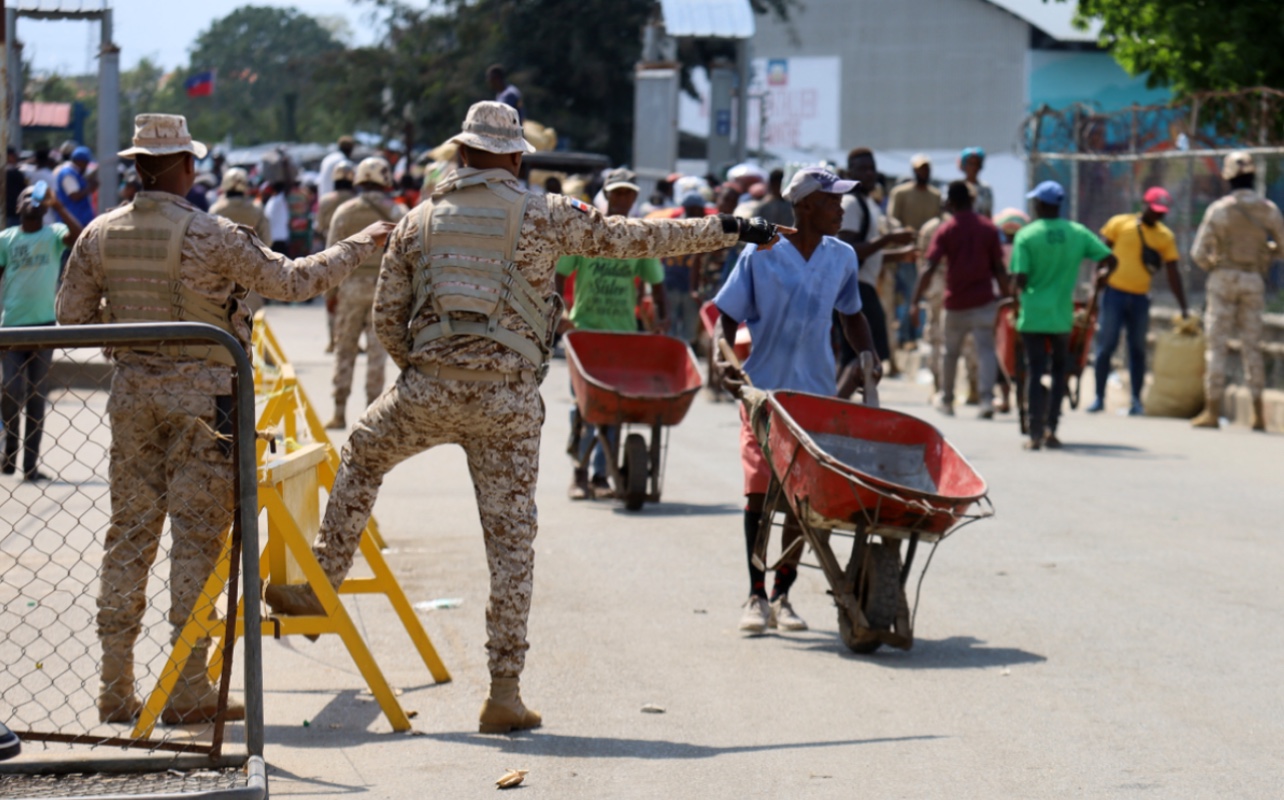
April 22, 2024
Biden Administration Deports Haitian Migrants Amid Criticism Over Country’s Ongoing Violence
In March, the Biden administration was sent a letter from more than 480 human rights organizations asking for several concessions for Haitian migrants.
On April 18, the Biden administration deported approximately 50 Haitians to their home country, which is currently experiencing turmoil and unrest. Although it was the first deportation flight initiated by the United States to Haiti in several months, the move was criticized by several advocacy groups.
As the Associated Press reports, the United States Department of Homeland Security indicated that it was following its policy of returning noncitizens who do not establish a legal basis for remaining in the United States to their home countries. The DHS statement declared that it “will continue to enforce U.S. laws and policy throughout the Florida Straits and the Caribbean region, as well as at the southwest border. U.S. policy is to return noncitizens who do not establish a legal basis to remain in the United States.”
In March, the Biden administration was sent a letter from more than 480 human rights organizations asking for several concessions from the United States government for Haitian migrants. These include the immediate release of currently detained Haitian migrants, a pause on Haitian deportations, the closure of any pending deportations of Haitian migrants, and the creation of a new Temporary Protected Status for Haitian migrants that would allow those who are already living in the United States to remain there.
According to the letter, if the United States could not keep its own people safe in Haiti, then there stood little chance of the Haitian government keeping those who were deported by the U.S. safe either. “If the United States cannot keep its personnel safe in Haiti, then the Haitian government is unlikely to keep Haitian nationals safe.”
Though the U.S. had not been able to return migrants via plane to Haiti before April 18, it has repatriated them via boat. “Those interdicted at sea are subject to immediate repatriation pursuant to our longstanding policy and procedures,” a spokeswoman for DHS told NBC News. The United States returns or repatriates migrants interdicted at sea to The Bahamas, Cuba, the Dominican Republic, and Haiti.
Furthermore, U.S. officials note that individuals who are repatriated at sea to Haiti are not being sent to the capital, where the violence is the thickest, but to less central areas of Haiti. Advocates for Haitian migrants say that this concession is not good enough, considering the widespread violence.
Advocates for Haitian migrants also say that the position of the United States refusing to provide Haitian migrants with TPS was hypocritical when the American government extended the program to Venezuelan migrants in the summer of 2023, whose conditions were less threatening than those in Haiti.
Gurline Jozef, a human rights advocate and co-founder of the Haitian Bridge Alliance, the group that led the letter from the human rights organizations, said that the United States’ claims that accepting Haitian migrants into the TPS system would cause a mass migration event are overblown.
“It is almost impossible to leave Haiti,” Jozef told NBC News, “There is no excuse to send anyone to anywhere in Haiti right now. They are using this as an excuse for the inexcusable. The whole country is unstable.”
RELATED CONTENT: With A Surge In Gang Violence, Americans In Haiti Are Struggling To Find Ways To Escape